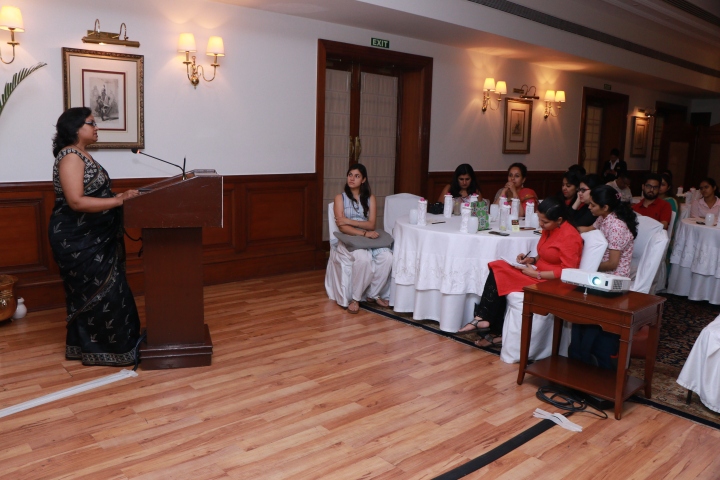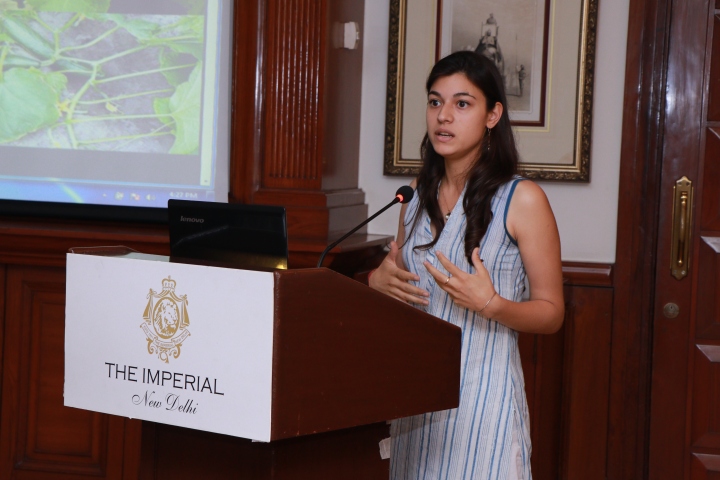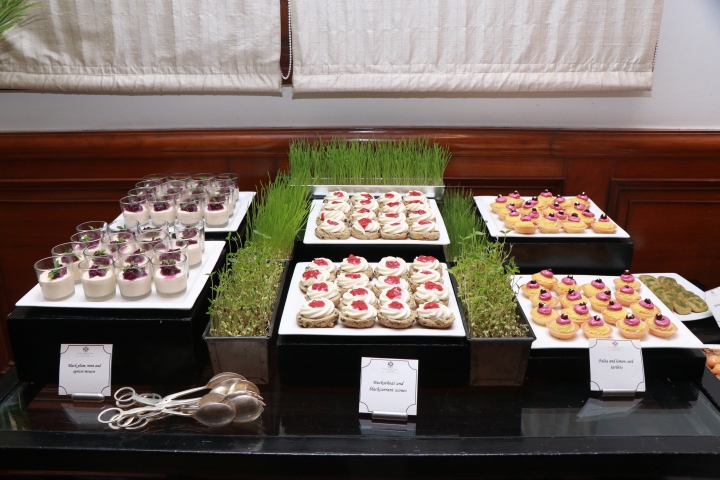On the occasion of the World Environment Day (i.e 1st June) this year, The Imperial, New Delhi curated an event to create awareness on the importance of slow-food or home-grown food and the benefits of consuming organic food along with ways to implement the idea in our own homes. To carry forward this initiative, they hosted talks by Sangeeta Khanna – a renowned food writer and nutrition consultant and Shabnam Kapoor, the co-founder of Khetify – a smart urban home farming solution.
Sangeeta Khanna talked about how the myriad choices or luxuries provided to us are driving our lifestyle and making it sedentary, hence making us unhealthy.
The labels on most food products are cryptic and hardly contain a small percentage of the actual product and that too laced with chemical preservatives. For instance, the plastic bags which we carry home on buying veggies must be kept count of. One must reuse them instead of callously getting more of them each time we go shopping.

Also, the kitchen waste must be utilised to form a compost which would turn into a nutrient-rich manure to be used for home gardening. We could then grow organic vegetables in the soil instead of letting the waste rot in some overflowing mountain of landfill which would only release more greenhouse gases thus contributing to the increasing global warming.
The benefits of growing one’s own food are not limited to eating healthy but also has recreational significance. As one nurtures these plants, it serves as a therapy and a welcome change from the monotonous robotic lifestyle that most of us city millennials lead.
One can start off by planting herbs like thyme, basil and mint utilizing the space in the kitchen window sill. She also talked about how she, like most of us fancied growing exotic vegetables like cherry tomatoes at first but later on realizing that they require gallons of water switched to more water-economical ones.
On similar lines, she talked about the sensible idea of growing the locally grown plants as oppose to the non-native ones due to their higher nutritional content compared to the foreign ones along with being more water-economical. For eg: A small bonsai tree has fifty times more nutrients than lettuce while native herbs like Turmeric, ginger, drumsticks, Aloevera and their plant parts have numerous health benefits.
This was followed by a talk by Shabnam Kapoor, the co-founder of Khetify which intends to make the urban dwellers self-sufficient for food by utilizing the space available to them all this while connecting with nature.

She talked about the loss of nutritional content of the plants due to the transportation time and methods. For instance, Spinach loses around 75% of it’s Vitamin C content due to transportation from the source to the destination.
She shared that India is one of the largest producer and consumer of pesticides whose leachate contaminates the water and soil increasing pollution. She also briefed us about the method to grow your own plants, how the selection of the crops should be done according to the season and keeping in mind the geography of the place. A few tips to prevent attacks by pests in a natural way were also discussed.
Vijay Wanchoo- Sr. EVP & GM The Imperial New Delhi said “We have always demonstrated a commitment to environment by reducing, recycling and reusing to give back to society and the surroundings we operate in. Taking these programs a step ahead, we propose home-grown produce as a vital stream of life in the current scenario and thank Ms. Sangeeta Khanna and Khetify for their immense support in spreading this topical knowledge to the urban city dwellers.” He further said “The increasing use of pesticides and synthetic fertilizers in farm produce is triggering toxic food, filled with chemical components. This leads to serious health hazards, on regular consumption. The best way to escape this uncertainty of what is going in our systems is by reducing dependency on fruits and vegetables grown by farmers and adapting home- gardening in your own backyard/ balcony. Also gardening makes you happy, it saves cost and time, is convenient, organic and nutritious.”
He spoke about how the hotel employs various eco-friendly methods to conserve nature like solar heating and rain water harvesting and utilises wet wastes in producing manure.
He also talked about the sewage treatment plant installed at the hotel which cleanses water siphoning it back to the terrace. He told that around five years back, the cafeteria switched from the traditional Tandoor which required 80 kilos of coal to a Chapatti maker which consumes only 20% of the power electricity in addition to natural gas and can roll out 1000 chapattis per hour.

The afternoon concluded with a organically curated Green Hi –Tea spread by Chef Alok Verma- Executive Sous Chef The Imperial New Delhi. It featured a spectacular spread including Purple quinoa, parsley and millet salad with pomegranate; Avocado, lime, tomato and cilantro with dehydrated banana chips; Charred red peppers, goat cheese pyramids in sour dough; Beetroot and millet focaccia, smoked salmon, rocket leaves, honey mustard; Spinach, avocado and Aloe Vera smoothie; Caramelized apple cake with ragi and cinnamon amidst other delectable delights, offering a healthy and nutritious ode to the nature.
You must be logged in to post a comment.